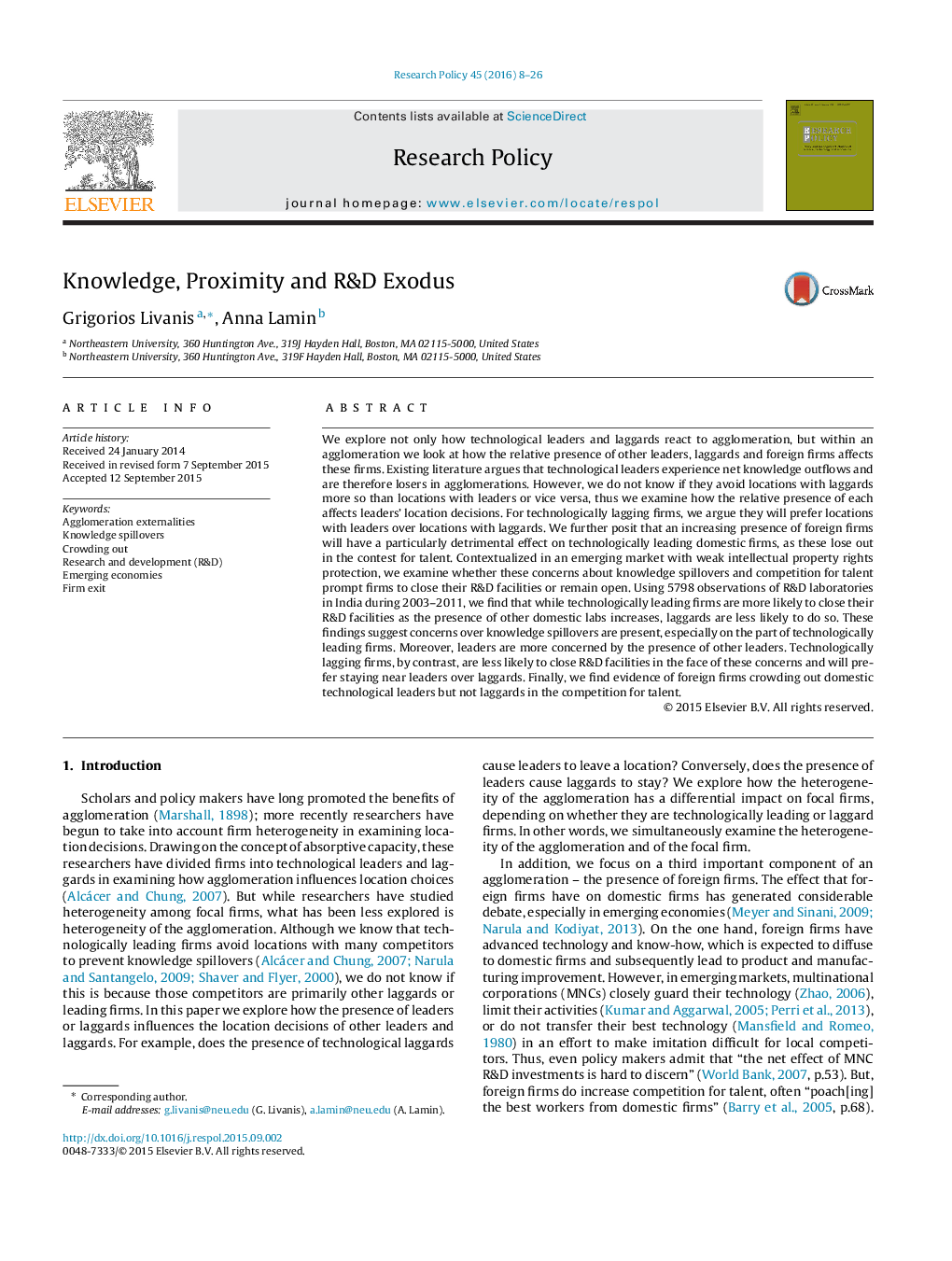| Article ID | Journal | Published Year | Pages | File Type |
|---|---|---|---|---|
| 10483246 | Research Policy | 2016 | 19 Pages |
Abstract
We explore not only how technological leaders and laggards react to agglomeration, but within an agglomeration we look at how the relative presence of other leaders, laggards and foreign firms affects these firms. Existing literature argues that technological leaders experience net knowledge outflows and are therefore losers in agglomerations. However, we do not know if they avoid locations with laggards more so than locations with leaders or vice versa, thus we examine how the relative presence of each affects leaders' location decisions. For technologically lagging firms, we argue they will prefer locations with leaders over locations with laggards. We further posit that an increasing presence of foreign firms will have a particularly detrimental effect on technologically leading domestic firms, as these lose out in the contest for talent. Contextualized in an emerging market with weak intellectual property rights protection, we examine whether these concerns about knowledge spillovers and competition for talent prompt firms to close their R&D facilities or remain open. Using 5798 observations of R&D laboratories in India during 2003-2011, we find that while technologically leading firms are more likely to close their R&D facilities as the presence of other domestic labs increases, laggards are less likely to do so. These findings suggest concerns over knowledge spillovers are present, especially on the part of technologically leading firms. Moreover, leaders are more concerned by the presence of other leaders. Technologically lagging firms, by contrast, are less likely to close R&D facilities in the face of these concerns and will prefer staying near leaders over laggards. Finally, we find evidence of foreign firms crowding out domestic technological leaders but not laggards in the competition for talent.
Keywords
Related Topics
Social Sciences and Humanities
Business, Management and Accounting
Business and International Management
Authors
Grigorios Livanis, Anna Lamin,
